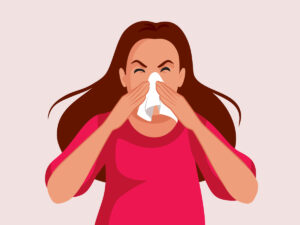By Sherri Snelling
As we move through life, there are so many things that can affect our well-being. Keeping an eye on the positive things that make us smile and bring joy is key to happily navigating the hustle and bustle of everyday activities. Here we take a look at what that may mean for those of us in a caregiving role.
The role of family caregiver is not unlike other important roles we may play in life—bride or groom, mother or father—except for one thing: It doesn’t come wrapped in happiness. You don’t enthusiastically share with co-workers that your mom has Stage 4 lung cancer or excitedly tell neighbours that your husband was just diagnosed with Alzheimer’s.
But there are ways for family caregivers to find happiness in their caregiving journey.
In fact, happiness research has become a dominant theme of many scientific health investigations—more than 14,000 studies since 2012—and in the words of psychology professor at the University of California Riverside Sonja Lyubomirsky, “Happiness research is the new Holy Grail of science.” When it comes to caregiving, these experts believe happiness is a life choice. It is within a caregiver’s grasp no matter your life situation, socioeconomic status or where you live.
The following is advice from scientific and aging experts on the pursuit of happiness and five prescriptions for family caregivers to create joy along their journey:
TIP 1 Lean into meaningful relationships
Many studies show the happiest, and often the healthiest, people have quality relationships in their lives that tend to include family, friends and community. Too often, however, caregivers lose touch with many friends, co-workers, neighbours and others. This isolation and loneliness—both for older adults and for family caregivers—can be the health equivalent of smoking 15 cigarettes per day.
The landmark Harvard Study of Adult Development, which began 77 years ago, is the longest running look at health and happiness. Researchers found it is not the quantity of relationships, it is the quality that counts.
“You can be in a crowd or in a marriage and be lonely and disconnected,” shared psychiatrist Dr. Robert Waldinger, current director of the Harvard study, at a TED event. “Loneliness is toxic,” he continued but stated that quality relationships where you can count on people in times of need make us happier and even make our brains sharper.
Laura Carstensen, founder of the Stanford Center on Longevity, underscores this quality relationship concept. Her socioemotional selectivity theory research found that we naturally prune our relationships as we age because we understand shrinking time horizons. We invest more time in smaller groups and focused activities that lead to happier experiences. By investing only in quality interactions, she says, “Older people are happier.”
Caregiver Rx: Do not avoid or lose relationships that matter to you. Carve out time for those meaningful friendships.
TIP 2 Find your tribe
In the same spirit as pursuing quality relationships, bestselling author Dan Buettner recently published his fourth book in his Blue Zones series, this one devoted to finding happiness. His globetrotting research in happiness hot spots such as Costa Rica, Denmark and Singapore found if you can find a balance of pleasure, purpose and pride in life, you can achieve happiness even in tough, challenging times. In fact, it is this trifecta of balancing the three P’s that can help caregivers weather setbacks and crises when caring for a loved one.
One of Buettner’s tips is to “find your tribe.” He writes that research shows we are “genetically hardwired to cluster into groups of familiar people who share our values.” Typically this includes younger and aging family members but can also include friends such as those of a similar faith.
Caregiver Rx: Rely on your tribe to help. If you accept the concept that the tribe you have chosen—family, friends, faith—will have your back in troubling times, now is the time to ask them to share the care so you can get a break.
TIP 3 Practice positivity, find your happy place
Lyubomirsky, has spent years studying happiness and its health impacts. One of her projects required participants to think about happy events for just eight minutes every day for three simultaneous days. The results showed participants had higher life satisfaction levels for the following four weeks at higher levels than they felt before they joined the study.
Caregiver Rx: Visualize places, people, memories that make you happy for a few minutes a day and feel the residual positive feelings for weeks.
TIP 4 Accomplish one simple thing a day
According to noted psychology author and researcher Mihaly Csikszentmihalyi, “Flow is when the best moments in our lives are not the passive, receptive, relaxing times … The best moments usually occur if a person’s body or mind is stretched to its limits in a voluntary effort to accomplish something difficult and worthwhile.”
Essentially, flow means finding your strengths and then using them to the best of your ability. However, we have to embrace the caregiving experience—welcome it, relish it—in order to have the flow and happiness that Csikszentmihalyi prescribes.
Author Gretchen Rubin’s bestselling book, The Happiness Project, spawned a movement to create joy in our lives every day. She advises that very simple life tasks (such as making your bed) when done on a daily basis, can actually spark happiness.
Caregiver Rx: Since caregivers often don’t have control over a loved one’s illness or disability, being able to find flow—putting your strengths as a caregiver to work—and to successfully fulfill other simple daily tasks, such as making your bed, can sometimes be enough to get you through the challenging times.
TIP 5 Enjoy hugs, humour and hygge
Research has looked at the health benefits of a good bear hug. When welcome, it releases oxytocin—the “feel-good” hormone—in our bodies. Scientists have found hugs boost immunity to ward off colds, help calm anxiety and even have a neuroprotective factor to boost brain health. Neuroeconomist Paul Zak prescribes at least eight hugs a day that last 20 seconds each to reach the optimal health benefit from the oxytocin release.
Humour can also be therapeutic. Laughter relaxes the muscles in the whole body, decreases the stress hormone to boost immunity and—by increasing blood flow—helps protect the heart against cardiovascular problems.
Last but not least is the Danish art of hygge (pronounced HUE-gah) which literally translates as “coziness.” Many of us need calm; we need to occasionally pause our digital interruptions and unplug from technology. Hygge means finding warmth and quiet time or personal interaction with one or more people where you connect through eye and other physical contact. Whether it is curling up with a good book, going fishing, playing card games with friends or family, just relax and enjoy the moment.
Caregiver Rx: Get eight hugs per day. Try to laugh between 15 times (average for adults) daily. Unplug from technology 20 minutes daily and immerse in a cozy environment.
Sherri Snelling is a corporate gerontologist, author and CEO of the Caregiving Club with an expertise in caregiver wellness, brain health and Alzheimer’s disease and aging in place design concepts. Visit caregivingclub.com. This article was reprinted with permission www.fromcaregivingclub.com
©2021 Caregiving Club, Inc.












